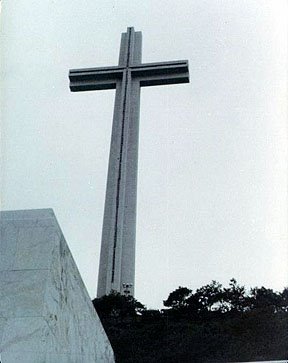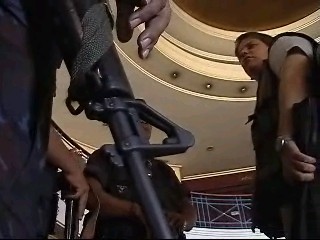-
FYI News Features
July 4th, 2006From 1946 to the mid-60's, the 4th of July was the day that Filipinos celebrated Independence Day, but for the past 40 years, it has been downplayed to a mere Fil-Am, Friendship Day. But for the American community here, this day marks the two countries' shared values and vision, remembered as intensely as when they fought their common enemies side-by-side. Michael Cohen
-
Lifestyle Feature
June 6th, 2006Name a favourite spot in the nation’s capital and Baywalk would surely top the list nowadays. This, after the Manila City government did a total make-over of what was once a dimly-lit bicycle lane frequented by shady characters, transforming it into a vibrant park that appeals to people from all walks of life. —Ron Jalmasco
-
News Feature
June 1st, 2006Around 3,000 Filipinos leave the country every day to work abroad. While government acknowledges that Overseas Filipino Workers are the prime movers of the economy, it is alarmed by the inevitability of a brain drain here at home. —Ces Vitan
-
News Feature
June 1st, 2006 Impassioned speeches and slogans filled the streets of Metro Manila and other Philippine cities on Labor Day, as thousands of the country's work force expressed their frustration over low wages and rising prices of commodities, oil and utility services. —Doris Bigornia. -
Environment Feature
May 29th, 2006 It is nice to watch children build their dreams, albeit on sand castles, but to see those dreams fall apart along the banks of a dying river negates the essence of both childlike faith… and dreams. —Ces Vitan -
FYI Health Feature
May 24th, 2006 It need not be a fad to be fit. With stress and unhealthy lifestyles, it still pays to be conscious about one's health and well-being. -
News Feature
May 18th, 2006 Overseas Filipino Workers are often extolled as heroes, but with every cent they remit back home comes an even bigger sacrifice. Save from enduring the difficulties of working away from home, they face the risk of drifting farther from the family they work hard for. –Ces Vitan -
FYI Environment Feature
May 15th, 2006 He could have made it as a bigtime businessman, but Toto Malvar chose to follow God's lead... to go live with His people, nurture them, as they learn to nurture their environment. --By Ron Jalmasco -
News Feature
May 14th, 2006A not-so-uncommon sight during rallies is the big number of children and teens participating—perhaps too young to understand the cause that they, or their elders, are marching for. —Erika Guarino
Thursday, July 06, 2006
Thursday, April 20, 2006
old soldiers never die; they just fade away....
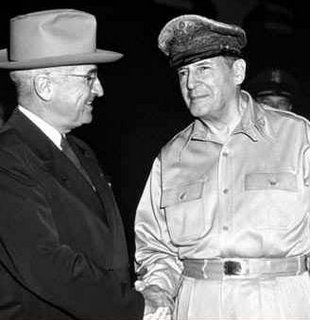
On this day in 1951 - General MacArthur addressed the joint session of Congress after being relieved by U.S. President Truman.
"Mr. President, Mr. Speaker and Distinguished Members of the Congress:
I stand on this rostrum with a sense of deep humility and pride - humility in the wake of those great architects of our history who have stood here before me, pride in the reflection that this home of legislative debate represents human liberty in the purest form yet devised. Here are centered the hopes and aspirations and faith and failures of the entire human race.
I do not stand here as advocate for any partisan cause, for the issues are fundamental and reach quite beyond the realm of partisan considerations. They must be resolved on the highest plane of national interest if our course is to prove sound and our future protected.
I trust, therefore, that you will do me the justice of receiving that which I have to say as solely expressing the considered viewpoint of a fellow American.
I address you with neither rancor nor bitterness in the fading twilight of life, with but one purpose in mind: To serve my country. The issues are global, and so interlocked that to consider the problems of one sector oblivious to those of another is to court disaster for the whole.
While Asia is commonly referred to as the gateway to Europe, it is no less true that Europe is the gateway to Asia, and the broad influence of the one cannot fail to have its impact upon the other.
There are those who claim our strength is inadequate to protect on both fronts, that we cannot divide our effort. I can think of no greater expression of defeatism. If a potential enemy can divide its strength on two fronts, it is for us to counter his effort.
The Communist threat is a global one. Its successful advance in one sector threatens the destruction of every other sector.
You cannot appease or otherwise surrender to Communism in Asia without simultaneously undermining our efforts to halt its advance in Europe. Beyond pointing out these general truisms, I shall confine my discussion to the general areas of Asia.
Before one may objectively assess the situation now existing there, he must comprehend something of Asia’s past and the revolutionary changes which have marked her course up to the present. Long exploited by the so-called colonial powers, with little opportunity to achieve any degree of social justice, individual dignity or a higher standard of life such as guided our own noble administration in the Philippines, the people of Asia found their opportunity in the war just past to throw off the shackles of colonialism and now see the dawn of new opportunity, and heretofore unfelt dignity, and the self-respect of political freedom.
Mustering half of the earth’s population, and 60 percent of its natural resources, these peoples are rapidly consolidating a new force, both moral and material, with which to raise the living standard and erect adaptation of the design of modern progress to their own distinct cultural environments.
Whether one adheres to the concept of colonialization or not, this is the direction of Asian progress and it may not be stopped. It is a corollary to the shift of the world economic frontiers as the whole epicenter of world affairs rotates back toward the area whence it started. In this situation, it becomes vital that our own country orient its policies in consonance with this basic evolutionary condition rather than pursue a course blind to reality that the colonial era is now past and the Asian peoples covet the right to shape their own free destiny.
What they seek now is friendly guidance, understanding and support, not imperious direction, the dignity of equality and not the shame of subjugation.
Their prewar standard of life, pitifully low, is infinitely lower now in the devastation left in war’s wake. World ideologies play little part in Asian thinking and are little understood. What the people strive for is the opportunity for a little more food in their stomachs, a little better clothing on their backs and a little firmer roof over their heads, and the realization of the normal nationalist urge for political freedom.
These political-social conditions have but an indirect bearing upon our own national security, but do form a backdrop to contemporary planning which must be thoughtfully considered if we are to avoid the pitfalls of unrealism.
Of more direct and immediate bearing upon our national security are the changes wrought in the strategic potential of the Pacific Ocean in the course of the past war. Prior thereto the Western strategic frontier of the United States lay on the littoral line of the Americas, with an exposed island salient extending out through Hawaii, Midway and Guam to the Philippines. That salient proved not an outpost of strength but an avenue of weakness along which the enemy could and did attack.
The Pacific was a potential area of advance for any predatory force intent upon striking at the bordering land areas. All this was changed by our Pacific victory.
Our strategic frontier then shifted to embrace the entire Pacific Ocean, which became a vast moat to protect us as long as we held it. Indeed, it acts as a protective shield for all of the Americas and all free lands of the Pacific Ocean area.
We control it to the shores of Asia by a chain of islands extending in an arc from the Aleutians to the Mariannas, held by us and our free Allies. From this island chain we can dominate with sea and air power every Asiatic port from Vladivostok to Singapore and prevent any hostile movement into the Pacific.
Any predatory attack from Asia must be an amphibious effort. No amphibious force can be successful without control of the sea lanes and the air over those lanes in its avenue of advance. With naval and air supremacy and modest ground elements to defend bases, any major attack from continental Asia toward us or our friends in the Pacific would be doomed to failure.
Under such conditions, the Pacific no longer represents menacing avenues of approach for a prospective invader.
It assumes, instead, the friendly aspect of a peaceful lake. Our line of defense is a natural one and can be maintained with a minimum of military effort and expense. It envisions no attack against anyone, nor does it provide the bastions essential for the offensive operations, but properly maintained, would be an invincible defense against aggression.
The holding of this littoral defense line in the Western Pacific is entirely dependent upon holding all segments thereof, for any major breach of that line by an unfriendly power would render vulnerable to determined attack every other major segment.
This is a military estimate as to which I have yet to find a military leader who will take exception. For that reason, I have strongly recommended in the past, as a matter of military urgency, that under no circumstances must Formosa fall under Communist control. Such an eventuality would at once threaten the freedom of the Philippines and the loss of Japan, and might well force our Western Frontier back to the coast of California, Oregon and Washington. To understand the changes which now appear upon the Chinese mainland, one must understand the changes in Chinese character and culture over the past 50 years.
China up to 50 years ago was completely non-homogenous, being compartmented into groups divided against each other. The war-making tendency was almost non-existent as they still followed the tenets of the Confucian ideal of pacifist culture. At the turn of the century under the regime of Chang Tso-Lin efforts toward greater homogeneity produced the start of a nationalist urge.
This was further and more successfully developed under the leadership of Chiang Kai-shek, but has been brought to its greatest fruition under the present regime to the point that it has now taken on the character of a united nationalism of increasingly dominant aggressive tendencies. Through the past 50 years the Chinese people have thus become militarized in their concepts and in their ideals.
They now constitute excellent soldiers, with competent staffs and commanders. This has produced a new and dominant power in Asia, which, for its own purposes, is allied with Soviet Russia but which in its own concepts and methods has become aggressively imperialistic, with a lust for expansion and increased power normal to this type of imperialism.
There is little of the ideological concept either way or another in the Chinese makeup. The standard of living is so low and the capital accumulation has been so thoroughly dissipated by war that the masses are desperate and eager to follow any leadership which seems to promise the alleviation of woeful stringencies.
I have from the beginning believed that the Chinese Communists’ support of the North Koreans was the dominant one. Their interests are at present parallel with those of the Soviet, but I believe that the aggressiveness recently displayed not only in Korea but also in Indo-China and Tibet and pointing potentially toward the south reflects predominantly the same lust for the expansion of power which has animated every would-be conqueror since the beginning of time. The Japanese people since the war have undergone the greatest reformation recorded in modern history. With a commendable will, eagerness to learn, and marked capacity to understand, they have from the ashes left in war’s wake erected in Japan an edifice dedicated to the supremacy of individual liberty and personal dignity, and in the ensuing process there has been created a truly representative government committed to the advance of political morality, freedom of economic enterprise, and social justice.
Politically, economically, and socially Japan is now abreast of many free nations of the earth and will not again fail the universal trust.
That it may be counted upon to wield a profoundly beneficial influence over the course of events in Asia is attested by the magnificent manner in which the Japanese people have met the recent challenge of war, unrest and confusion surrounding them from the outside and checked Communism within their own frontiers without the slightest slackening in their forward progress.
I sent all four of our occupation divisions to the Korean battle front without the slightest qualms as to the effect of the resulting power vacuum upon Japan. The results fully justified my faith. I know of no nation more serene, orderly and industrious, nor in which higher hopes can be entertained for future constructive service in the advance of the human race.
Of our former ward in the Philippines we can look forward in confidence that the existing unrest will be corrected and a strong and healthy nation will grow in the longer aftermath of the war’s terrible destructiveness.
We must be patient and understanding and never fail them, as in our hour of need they did not fail us.
A Christian nation, the Philippines stands as a mighty bulwark of Christianity in the Far East, and its capacity for high moral leadership in Asia is unlimited.
On Formosa, the government of the Republic of China has had the opportunity to refute by action much of the malicious gossip which so undermined the strength of its leadership on the Chinese mainland.
The Formosa people are receiving a just and enlightened administration with majority representation in the organs of government, and politically, economically and socially they appear to be advancing upon sound and constructive lines. With this brief insight into the surrounding areas, I now turn to the Korean conflict.
While I was not consulted prior to the President’s decision to intervene in support of the Republic of Korea, that decision, from a military standpoint, proved a sound one.
As I say, it proved to be a sound one, as we hurled back the invader and decimated his forces. Our victory was complete, and our objectives within reach, when Red China intervened with numerically superior ground forces.
This created a new war and an entirely new situation, a situation not contemplated when our forces were committed against the North Korean invaders; a situation which called for new decisions in the diplomatic sphere to permit the realistic adjustment of military strategy. Such decisions have not been forthcoming.
While no man in his right mind would advocate sending our ground forces into continental China, and such was never given thought, the new situation did urgently demand a drastic revision of strategic planning if our political aim was to defeat this new enemy as we had defeated the old one.
Apart from the military need, as I saw it, to neutralize sanctuary protection given the enemy north of the Yalu, I felt that military necessity in the conduct of the war made necessary
(1) the intensification of our economic blockade against China,
(2) the imposition of a naval blockade against the China coast,
(3) removal of restrictions on air reconnaissance of China’s coastal area and of Manchuria,
(4) removal of restrictions on the forces of the Republic of China on Formosa, with logistical support to contribute to their effective operations against the Chinese mainland.
For entertaining these views, all professionally designed to support our forces in Korea and to bring hostilities to an end with the least possible delay and at a saving of countless American and Allied lives,
I have been severely criticized in lay circles, principally abroad, despite my understanding that from a military standpoint the above views have been fully shared in the past by practically every military leader concerned with the Korean campaign, including our own joint chiefs of staff. I called for reinforcements, but was informed that reinforcements were not available. I made clear that if not permitted to destroy the enemy built-up bases north of the Yalu, if not permitted to utilize the friendly Chinese force of some 600,000 men on Formosa, if not permitted to blockade the China Coast to prevent the Chinese Reds from getting succor from without, and if there was to be no hope of major reinforcements, the position of the command from the military standpoint forbade victory.
We could hold in Korea by constant maneuver and in an area where our supply line advantages were in balance with the supply line disadvantages of the enemy, but we could hope at best for only an indecisive campaign with its terrible and constant attrition upon our forces if the enemy utilized its full military potential.
I have constantly called for the new political decision essential to a solution.
Efforts have been made to distort my position. It has been said in effect that I was a warmonger. Nothing could be further from the truth.
I know war as few other men now living know it, and nothing to me is more revolting. I have long advocated its complete abolition, as its very destructiveness on both friend and foe has rendered it useless as a means of settling international disputes.
Indeed, the second day of September, 1945, just following the surrender of the Japanese nation on the Battleship Missouri, I formally cautioned as follows: ‘Men, since the beginning of time have sought peace. Various methods through the ages have been attempted to devise an international process to prevent or settle disputes between nations.
From the very start workable methods were found insofar as individual citizens were concerned, but the mechanics of an instrumentality of larger international scope have never been successful. ‘Military alliances, balances of power, leagues of nations, all in turn failed, leaving the only path to be by war of the crucible of war.
The utter destructiveness of war now blocks out this alternative.
We have had our last chance. If we will not devise some greater and more equitable system, our Armageddon will be at our door.
The problem basically is theological and involves a spiritual recrudescence, and improvement of human character that will synchronize with our almost matchless advances in science, art, literature and all the material and cultural developments of the past 2,000 years.
‘It must be of the spirit if we are to save the flesh. ‘But once war is forced upon us, there is no other alternative than to apply every available means to bring it to a swift end. War’s very object is victory, not prolonged indecision.
‘In war indeed there can be no substitute for victory.’ There are some who for varying reasons would appease Red China.
They are blind to history’s clear lesson, for history teaches with unmistakable emphasis that appeasement but begets new and bloodier wars.
It points to no single instance where this end has justified the means, where appeasement has led to more than a sham peace. Like blackmail, it lays the basis for new and successively greater demands until, as in blackmail, violence becomes the only other alternative. Why, my soldiers asked me, surrender military advantages to an enemy in the field?
I could not answer. Some may say to avoid spread of the conflict into an all-out war with China. Others, to avoid Soviet intervention.
Neither explanation seems valid, for China is already engaging with the maximum power it can commit, and the Soviet will not necessarily mesh its action with our moves.
Like a cobra, any new enemy will more likely strike wherever it feels that the relativity of military and other potentialities is in its favor on a worldwide basis.
The tragedy of Korea is further heightened by the fact that its military action was confined to its territorial limits. It condemns that nation, which it is our purpose to save, to suffer the devastating impact of full naval and air bombardment while the enemy’s sanctuaries are fully protected from such attack and devastation.
Of the nations of the world, Korea alone, up to now, is the sole one which has risked it all against Communism.
The magnificence of the courage and fortitude of the Korean people defies description.
They have chosen to risk death rather than slavery. Their last words to me were: "Don’t scuttle the Pacific." I have just left your fighting sons in Korea.
They have done their best there, and I can report to you without reservation that they are splendid in every way.
It was my constant effort to preserve them and end this savage conflict honorably and with the least loss of time and a minimum sacrifice of life.
Its growing bloodshed has caused me the deepest anguish and anxiety.
Those gallant men will remain often in my thoughts and in my prayers always. I am closing my 52 years of military service.
When I joined the Army, even before the turn of the century, it was the fulfillment of all of my boyish hopes and dreams.
The world has turned over many times since I took the oath at West Point, and the hopes and dreams have all since vanished, but I still remember the refrain of one of the most popular barracks ballads of that day which proclaimed most proudly that old soldiers never die; they just fade away.
And like the old soldier of that ballad, I now close my military career and just fade away, an old soldier who tried to do his duty as God gave him the light to see that duty. Good-by."
Wednesday, April 19, 2006
Coincidences...
Let me assert my firm belief that the only thing we have to fear is fear itself.
- Franklin D. Roosevelt, on his inauguration as U.S. President.
Two dates in History today... Coincidences...
1942 - James H. Doolittle and his squadron, from the USA Hornet, raided Tokyo and other Japanese cities.

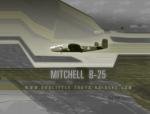
This raid came as surpirze to the Japanese so soon after Pearl Harbor- albeit had little physical effect in terms of total damage.
The impact shattered Japanese concept its homeland was out of reach at that time of American forces. While victory was still far off it boosted the morale of US troops and the American public- it also was seen as a early form of "payback" but the worst was still to come.
Same Date-1943 - Traveling in a bomber, Japanese Admiral Isoroku Yamamoto, was shot down by American P-38 fighters.

"On the morning of April 18, despite urgings by local commanders to cancel the trip for fear of ambush, Yamamoto's planes left Rabaul as scheduled for the 315-mile trip. Shortly after, eighteen specially-fitted P-38s took off from Guadalcanal. They wave-hopped most of the 430 miles to the rendezvous point, maintaining radio
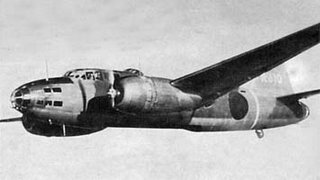 silence throughout. At 09:34 Tokyo time, the two flights met and a dogfight ensued between the P-38s and the six Zeroes escorting Yamamoto." Wilkpedia
silence throughout. At 09:34 Tokyo time, the two flights met and a dogfight ensued between the P-38s and the six Zeroes escorting Yamamoto." Wilkpedia
Friday, April 14, 2006
Bataan "a secular Good Friday...."
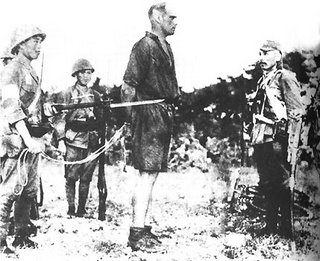 Today is Good Friday 2006...
Today is Good Friday 2006...A time Manila goes quiet to remember the passion of Christ...
Last year I covered a event on Mt. Samat.
A speech was read that put things into historical context.
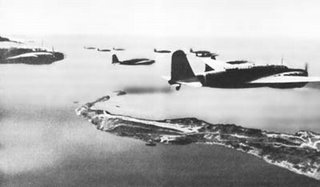
From Remarks of US embassy Chargé d’Affaires Joseph Mussomeli at “Araw ng Kagitingan” (Day of Valor) ceremony, Mt. Samat, Bataan Province, April 9, 2005...
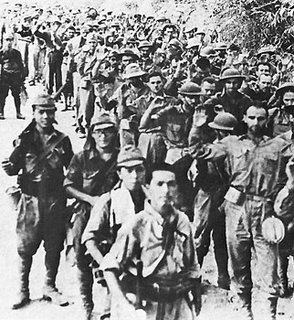
" Exactly 63 years ago, at 8 o’clock in the night on April 9, 1942, the Voice of Freedom radio station announced, “Bataan has fallen.”
"With that pronouncement, 75,000 Filipino and American soldiers surrendered in one of the worst military defeats in our collective history."
"Not since our own American Civil War had American forces suffered such a devastating setback."
"And, perhaps not so coincidentally, that other great defeat also took place on this same date, April 9, at Appomattox in Virginia. And both defeats fell near Holy Week...."
What struck me about the comments was one line in the speech that really put things into context.
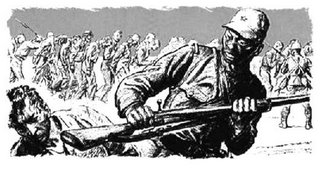
"we are too inclined to forget that after the fall of Bataan the situation looked hopeless. " Mussomeli went on to point out that hot april day... "That it seemed impossible to stop the onslaught of the imperial forces. "
That the enslavement of the world seemed at hand." Putting it into context "That a secular Good Friday had broken upon us."
Thursday, April 13, 2006
Remembering another lenten march long ago...
64 years ago this lenten season...
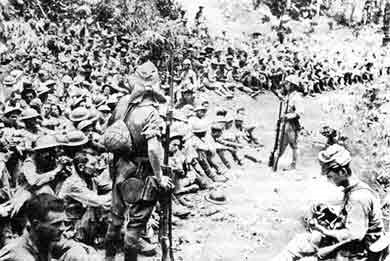
It happened on or near Good friday - my Dad told me... it was really sad Holy Week- I was not around but i do remember my dad as a young boy in manila telling me his feelings about the day he heard Bataan had fallen.
Most of those who had seen the fighting from the shores of manila bay remember only defiant words on the radio broadcast over the voice of freedom.
Ironically - from a tunnel also soon to be known for its fall - malinta in Corregedor.
The words- I wonder if any still live to have heard the elequent broadcast the Japanese tried to jam but the rock's ransmiter kept going along.
It confirmed the surrender of Gen King, the radio then was the way word came of the fall of Bataan - came to most- who knew the men of Corregidor would soon follow.
The transcript of the speech read slowly over the voice of freedom....
Indomitable Farewell
"Bataan has fallen. Fil-American troops in the ravaged and blood-stained peninsula have laid down their arms. With heads bloody but unbowed, They have yielded to the superior force and numbers of the enemy.
"The flesh must yield at last, for they are not made of impervious steel. They fought a brave and bitterly contested struggle, all the world will testify to the utmost superhuman which they stood up until the last face of overwhelming odds.
"Bataan fell, but the spirit that made it stood, a beacon to all liberty loving peoples of the world, did not fail."
As time passes many forget the sacrifices of men and boys - women and girls who fought or saw these events first hand.
Some look from the past for lessons for today.... I know decades have passed and time has moved on to the present where in todays world things have changed - but there is always a ned to look back remember and think of those times of the past and hope in future people do not forget.
there is more here - on this - perhaps better written than my words can be as I've heard the stories but these stories are people who lived those times...
http://www.paete.org/literary/archives/000006.php
Looking back to look forward
strange how history repeats....
 History has many lessons...
History has many lessons...The similarities of the past and present fascinate me- In Iraq where the current US counter insurgency fight is ongoing... If one were to look at it from the historical context of the Philippine insurrection - or - Philippine-American War one sees so many similar situations.
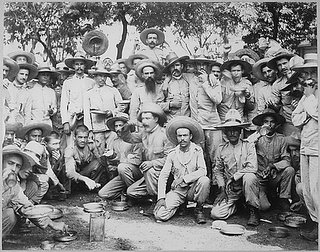
The first is troop straight - and years of fighting - according to an article in prologue the magazine of the US National Archives...
Where these photo's are found by the way...
all in the public domain....
" Approximately 125,000 troops served in the
The numbers are nearly the same as Iraq - when one takes into consideration - "volunteers" and Philippine
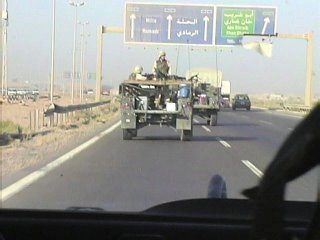 scouts units also used by the US military in the conflict. Casualties were about
scouts units also used by the US military in the conflict. Casualties were about4,200 killed although the injured or wounded figure covered those who per records were "maimed or disfigured" also all figures were only the
US forces - insurgent figures were much higher and civilian deaths and injuries now covered by the infamous "collateral damage" term were not mentioned.
Beginning in July 2004, the United States began implementing the OIF 3 troop rotation. OIF-3 plans call for troops numbers to be reduced from 140,000 to roughly 130,000. The rotation was slated to take place until March 2005." Reports globalsecurity.org in its order of battle figures for US troop straight.
More on the reports of tactics used are strikingly similar:
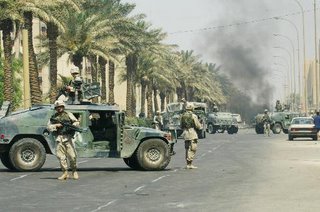
Iraq; "sweeps, conducted in June and July 2003, rounded up hundreds of Iraqis, they angered residents who complained of mistreating, arbitrary arrests and humiliation at the hands of US soldiers." Globalsecurity.org - operations Iraq.
Philippine American War; " wanton violence and slaughter. Villages were destroyed, civilians murdered, prisoners tortured
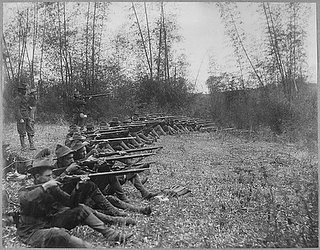 and mutilated along with a host of other atrocities. Many American officers and non-coms had served in the Indian Wars, and thus applied the old belief that "the only good Indian was a dead Indian" to their relations with the Filipinos. This attitude of course was reciprocated by the native forces." - The history guy website...
and mutilated along with a host of other atrocities. Many American officers and non-coms had served in the Indian Wars, and thus applied the old belief that "the only good Indian was a dead Indian" to their relations with the Filipinos. This attitude of course was reciprocated by the native forces." - The history guy website...The conflict however went far beyond the "End of hostilities declaration of president Teddy Roosevelt in 1902 - sounds like the Mission Accomplished statement in 2002! Stranger yet contingencies occur- but here was the scope and length of the conflict
look at the time frame covered by the US Military website listing the official duration of the conflict.
NAMED CAMPAIGNS - PHILIPPINE INSURRECTION
Streamers: Blue with two red stripes
| Manila | 4 February-17 March 1899 |
| Iloilo | 8-12 February 1899 |
| Malolos | 24 March-16 August 1899 |
| Laguna de Bay | 8-17 April 1899 |
| San Isidro | 21 April-30 May and 15 October-l9 November 1899 |
| Zapote River | 13 June 1899 |
| Cavite | 7-13 October 1899 and 4 January-9 February 1900 |
| Tarlac | 5-20 November 1899 |
| San Fabian | 6-19 November 1899 |
| Mindanao | 4 July 1902-31 December 1904 and 22 October 1905 |
| Jolo | 1-24 May 1905 and 6-8 March 1906 and 11-15 June 1913 |
" After these campaigns only scattered insurrectionist elements remained active in north and south Luzon. Lawton (killed on 18 December 1899) drove up the Marikina in December to cut important insurgent communication lines, and Wheaton and Schwan completed pacification of Cavite in January - February 1900. Subsequently, insurgent remnants in the Visayans and Mindanao were dispersed.
The capture of Aguinaldo by Brig. Gen. Frederick Funston, on 23 March 1901, dealt the final blow to the insurgent cause. President Roosevelt announced official conclusion of the Insurrection on 4 July 1902." -http://www.army.mil/cmh-pg/reference/picmp.htm
April 30, 2002 was the day the President made his statement
-
 Now the funny part-
Now the funny part-I tried to get the exact term and transcript used on the White House website for President Bush's mission accomplished statement....
" http://www.whitehouse.gov/error-404.html"
*The file you have attempted to access cannot be found. Please check the URL you entered to make sure there were no typing or copy-and-paste errors. You may also use our search facility to help you find the file you are looking for
Please note: many files associated with the previous administration have been removed from this server. Some materials may be available through the National Archives and Records Administration website."
